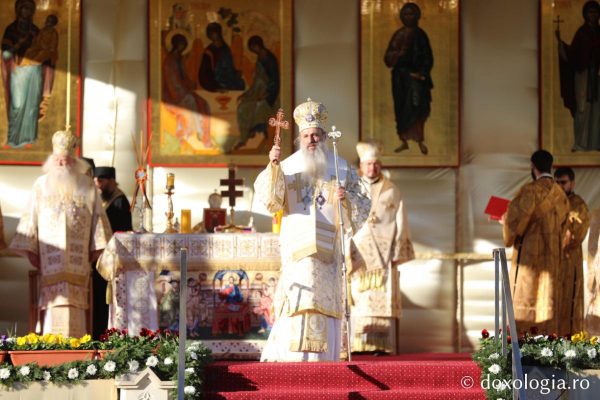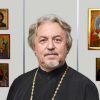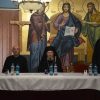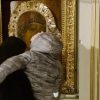In his homily on the feast of St Parascheva of Iaşi, Metropolitan Teofan offered some answers to the challenges of the present times.
To stop the community spread of the SARS-Cov-2 coronavirus, Romanian authorities imposed harsh restrictions for this year’s celebrations: pilgrims from outside the city of Iași were denied access to the cathedral where the saint’s relics are kept.
“The presence of this epidemic in our life challenges us to ask ourselves inevitable questions,” the metropolitan said Oct. 14.
“We, ordinary people and leaders, cannot avoid wondering why this is happening, we cannot avoid the question: What have we done wrong? What was it that we could have done better, what should we see and understand of all this?”
He said the answer can only come from deep within and is related to the mystery of communion, which has become a distant notion for too many of us.
“We do feel that this secret connection between people, which is called communion, is waning and we cannot refrain from asking whether we have contributed to this. The distance we are being summoned to keep mirrors our previous spiritual distancing from each other: children from their parents, teachers from their students, spouses from each other, politicians from their electors, priests from the faithful and hierarchs from priests.”
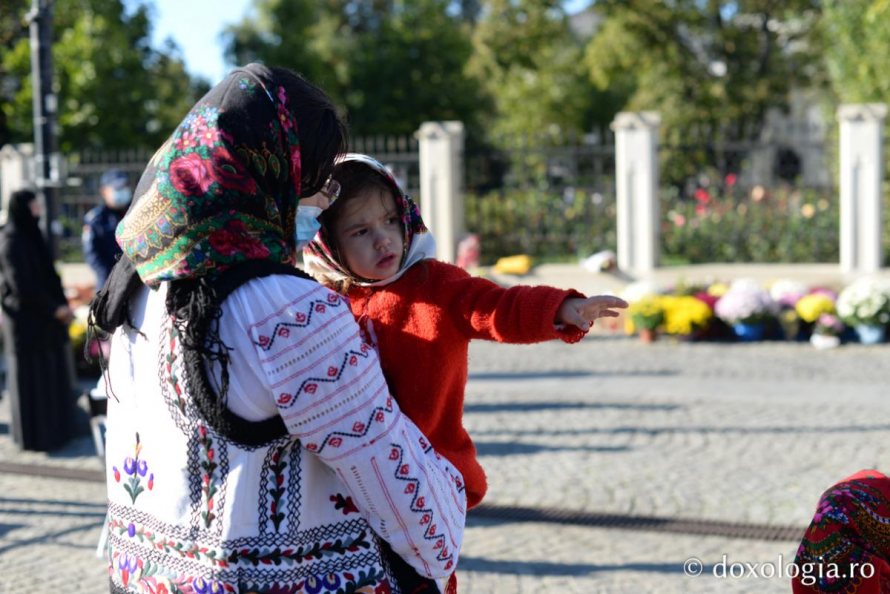
The metropolitan explained that duplicity has often interfered with our relations.
“We often prefer soul-killing falsehood to profound change. We’d like to look different than we are. Instead of real penitence and instead of striving to fulfil God’s will in us, we’d rather tap into the worldly spirit and make use of soul-crippling surrogates.”
“The state of spiritual watchfulness is too often replaced by apathy, simplicity by opulence, temperance by excess, which makes us vulnerable and unprepared for the trial we are going through. Particularly loneliness and restlessness have crept into our souls and hearts, we have become suspicious and diffident, relations between people and even between institutions have become tense and this can only add to the suffering and diminish our chance to be restored.”
Therefore, said the Metropolitan of Moldavia and Bukovina, “we need to become aware that our own inner failures define our present trajectory. And we need to accept that we are never going to be successful only through ourselves.”
Orthodoxy is inconceivable without its holy relics
His Eminence mentioned that St Parascheva’s holy relics are in Iași since 1641 and represent a “smooth and clear cascade of living water for the thirsty of the world, living water whose Source is our Lord Jesus Christ.”
“In times of joy and accomplishments, the faithful came to the saint’s relics to thank her, in drought time, her holy relics crossed the parched fields and the rain promptly poured. In times of plague, the saint received all who came to her. She comforted and blessed them. There are countless testimonies from those who found healing, peace after the turmoil of the soul, an answer to their difficult problems and a clear direction on the sinuous path of their lives.”
The hierarch explained that “such testimonies are foolishness for some; for the worldly spirit, the holy relics, just like the other elements of faith, are unacceptable.”
Yet, the metropolitan mentioned, “this has always been the faith of the Church, so much so that Orthodoxy is inconceivable without its holy icons and relics, just as it is inconceivable without the Holy Scripture or without the Divine Liturgy, without fasting and prayer, without charity and love of enemies.”
The Metropolitan of Moldavia also spoke of the epidemic we are confronted with and emphasized that “medicine, hospitalizing, all forms of protection are essential,” because “they make the material part of the treatment and are absolutely necessary.”
In addition, he reminded that places of worship give us help from God and the strength to fight the disease.
“An appeased man who has just participated in an act of faith becomes more resistant to the disease or, if already sick, more able to fight it. A real Christian would know that entrusting his or her life to a loving God, who conquered pain and disease for him, is a source of strength in the face of hardship.”
Pilgrimage is an act of faith
His Eminence also pointed to the fact that a pilgrimage is an act of faith and highlighted its spiritual and bodily benefits for the pilgrim:
“Many virtues are cultivated through the experience of the pilgrimage. Pilgrims renounce themselves and the usual comfort of life and simplify their life for a few moments – a comforting simplification which makes him more powerful.”
“Walking the way, the pilgrim will offer his help to other, will open up towards his fellows and will offer himself to God. He or she will place one’s life under a higher sign and sense, walking in the light of this meaning for a few days.”
“All this shows us that pilgrimage is a wonderful enactment of spiritual life, when the feeling of belonging to the community of faith is growing. That is why, pilgrimage intensifies the beneficient effects of faith on bodily health.”
Metropolitan Teofan prayed to St. Parascheva to be close to all and offer her help especially to those in hospitals. The hierarch also asked the pilgrims to respect the sanitary rules imposed to prevent the spread of the coronavirus.
“Through her prayers, we hope to receive forgiveness from God for everything we have done wrong as a nation, as servants of the Church, as dignitaries or public servants,” he added.
“We pray to God for those in the hospitals, where it gets harder by the day: for the sick and the medical workers. We can help them with our prayers and with preventative measures so that neither we nor our loved ones end up there and make the situation even harder.”
The Divine Liturgy was celebrated in the open air, in front of the Metropolitan Cathedral of Iași. Concelebrants for the Divine Liturgy included His Eminence Archbishop Calinic of Suceava and Rădăuţi and His Grace Bishop Veniamin of Southern Bessarabia.
Photography courtesy of Doxologia.ro












